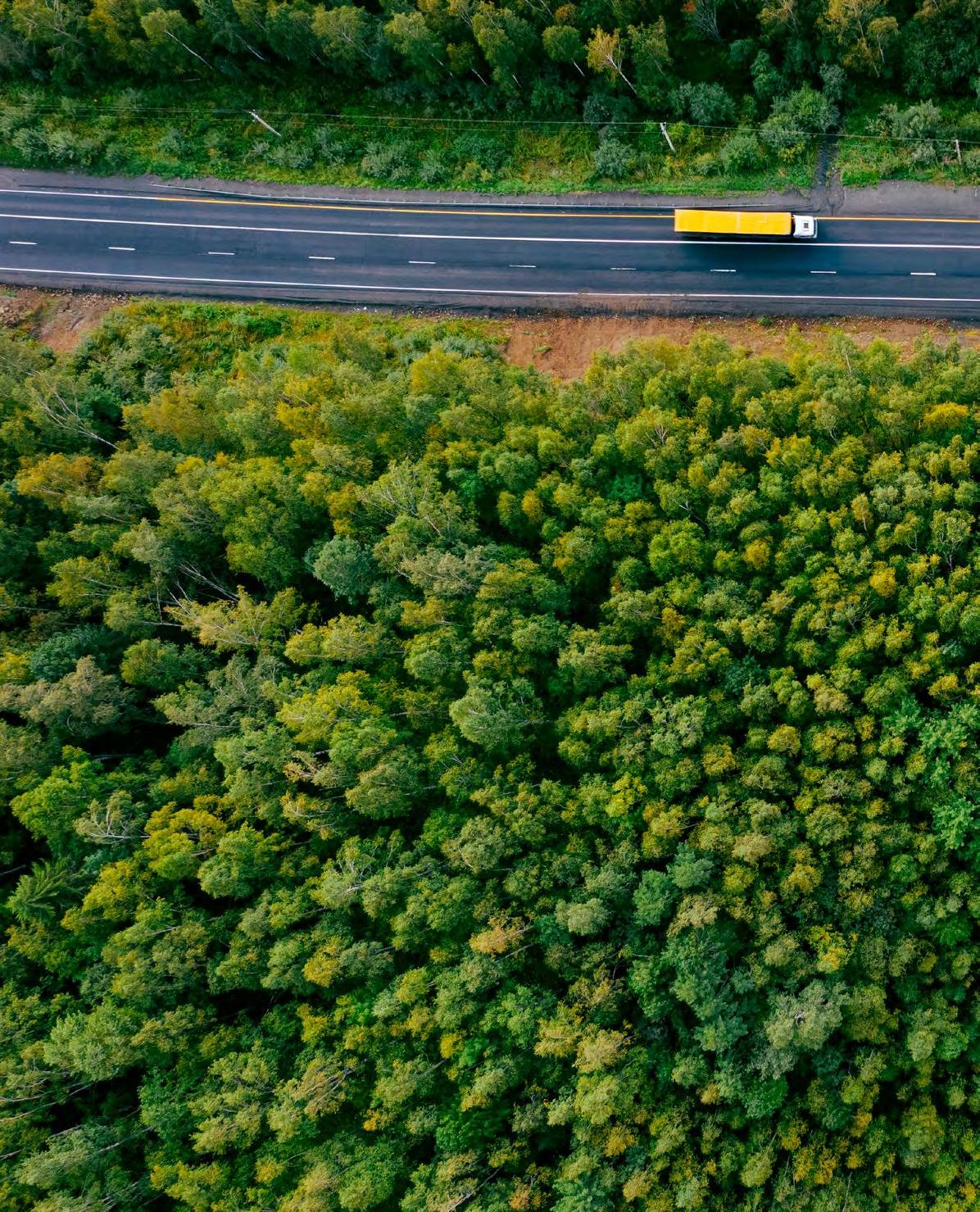PRODUCTION NOTES
Rebecca Travis After 20 years on the road with artists including Florence + The Machine, Ellie Goulding and Arcade Fire, tour manager Rebecca Travis shares the reflections and revelations she’s had during the enforced downtime.
What was the last tour you did before the pandemic took effect in 2020?
I was in Australia with Freya Ridings, and the fear of the pandemic was definitely bubbling. After our second show, in Melbourne on 12 March, we knew we had to get everybody home. We got back and they shut the Australian border shortly after – the timing was so tight. How has lockdown treated you?
My partner and I moved to the Scottish borders and it’s a beautiful part of the world. I’ve been on tour for 20 years and this is the longest I’ve been at home. There are parts of this that are really positive. There were so many years where I decided to have a quiet year but was then offered an amazing opportunity I couldn’t turn down, so the enforced downtime has definitely had positives. But enough already... can we please get back to work now? During lockdown you joined the newly formed Touring Production Group (TPG). Can you tell us more about that?
TPG started as weekly Zooms with production and tour managers (organised and chaired by Wob Roberts) getting together to produce a document on how we might tour post-Covid. It developed into something bigger and subgroups were formed in sustainability, diversity, equity and inclusion; and mental welfare and personal wellbeing. We have now opened up membership and have had a great response from people keen to make positive changes in touring. It’s important that people in this sector support each other and share knowledge and values and ideas about how we can make the industry a better place to be. I really hope when we finally get back on the road that we can actually put these ideas into practice and make a difference. In which areas of touring do you hope TPG will make an impact?
Hopefully, in all of the areas we are working on. For example, sustainability. If we’re all asking venues for certain
things to make the industry greener, hopefully it’ll become the norm to provide them. I think a lot of these changes have to come from the artist and then it’ll just become a part of what we have to do – it’ll be normal to say “we’re not going to do that trip” or “we’ll offset that trip.” We’ve also spoken to agents about routing tours in a greener way, asking that they don’t make us double back on ourselves, but we have to be realistic – post-Covid tour routing will be a challenge for agents. We’ve spoken about sustainability all this time; we have to start now and at least implement small changes and keep the discussions going even when we’re back to work. Have you had any revelations about the way the touring industry operates?
There have been a lot of revelations about the madness of zipping all over the world; moving in ten trucks’ worth of equipment, setting it up for a show and then putting it back in the trucks and moving it to the next place. Perhaps we will see bands adopt a more simple stage set-up, rather than lugging around all these bells and whistles. Also, Covid-wise, are we going to want to have 14 or 16 people on a tour bus? Maybe things will be scaled down a bit when we return. Has the enforced downtime put into perspective just how demanding your job is?
Yes. It would be ideal to perhaps do a little less touring and maybe not take 18 months of solid work at a time. We do long hours on the road – you might get up at six in the morning and might not get back into the bunk until 3 am, and you’re going to do that three times in a row before you have a day off and can collapse in a heap. In the TPG’s mental health and welfare chats, we’re discussing how to make that better, especially because we’ve just had completely different lives throughout the pandemic. We can’t just jump straight back on a bus and do 18-hour days. We’re not match fit. I think, in terms of all these things like mental health and sustainability, it’s about gently easing ourselves back into this. Baby steps.
Magazine
19







